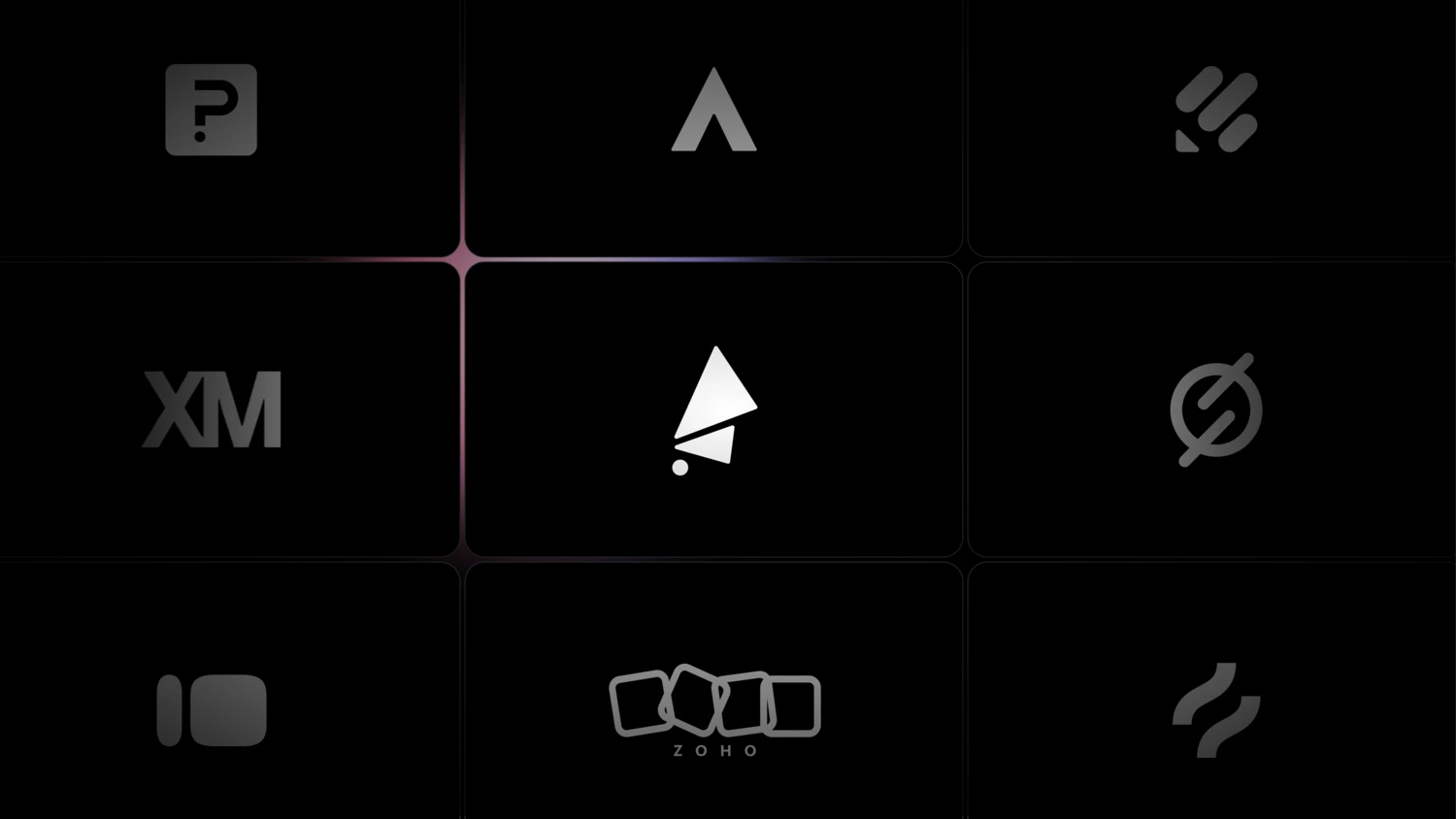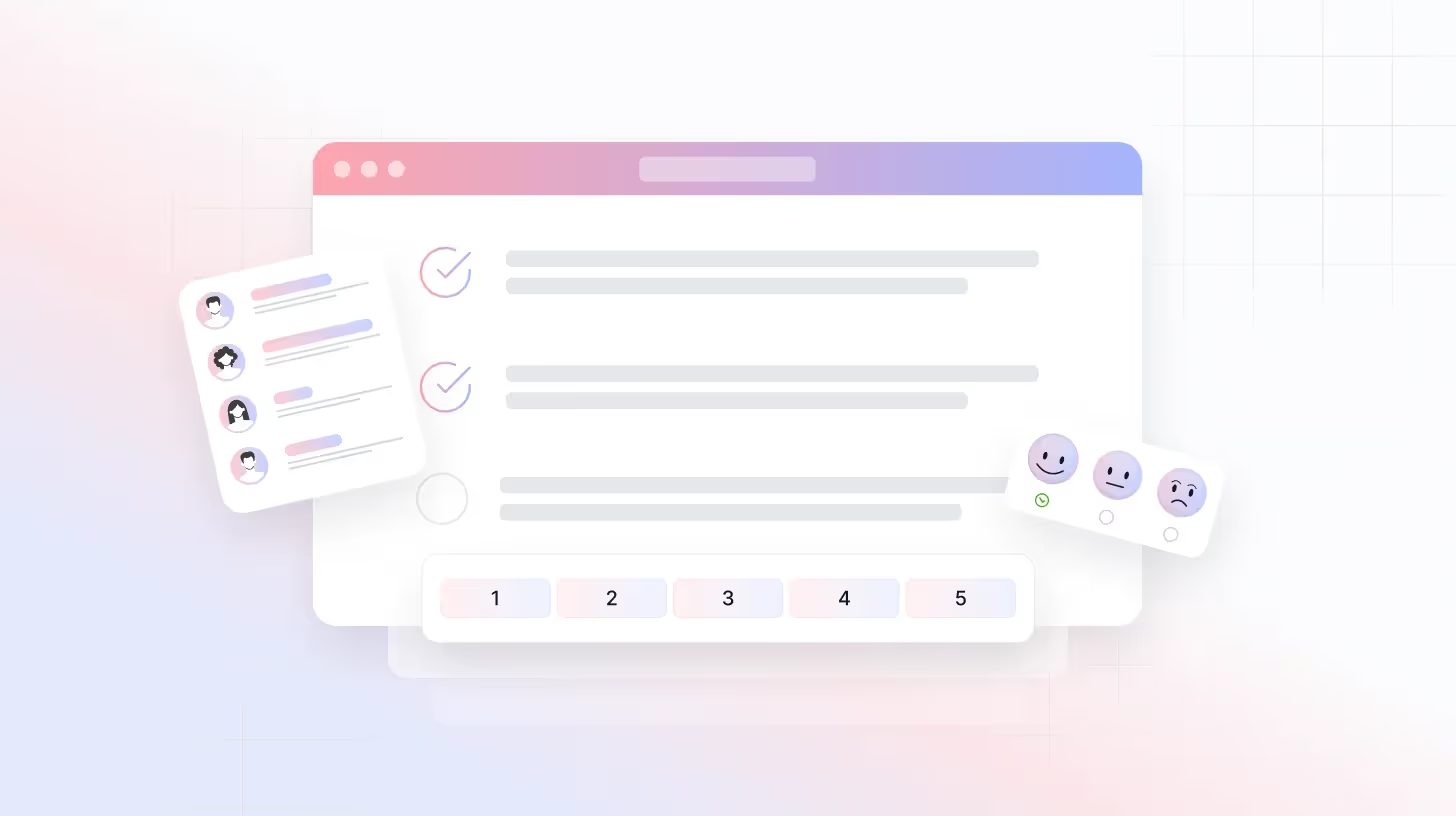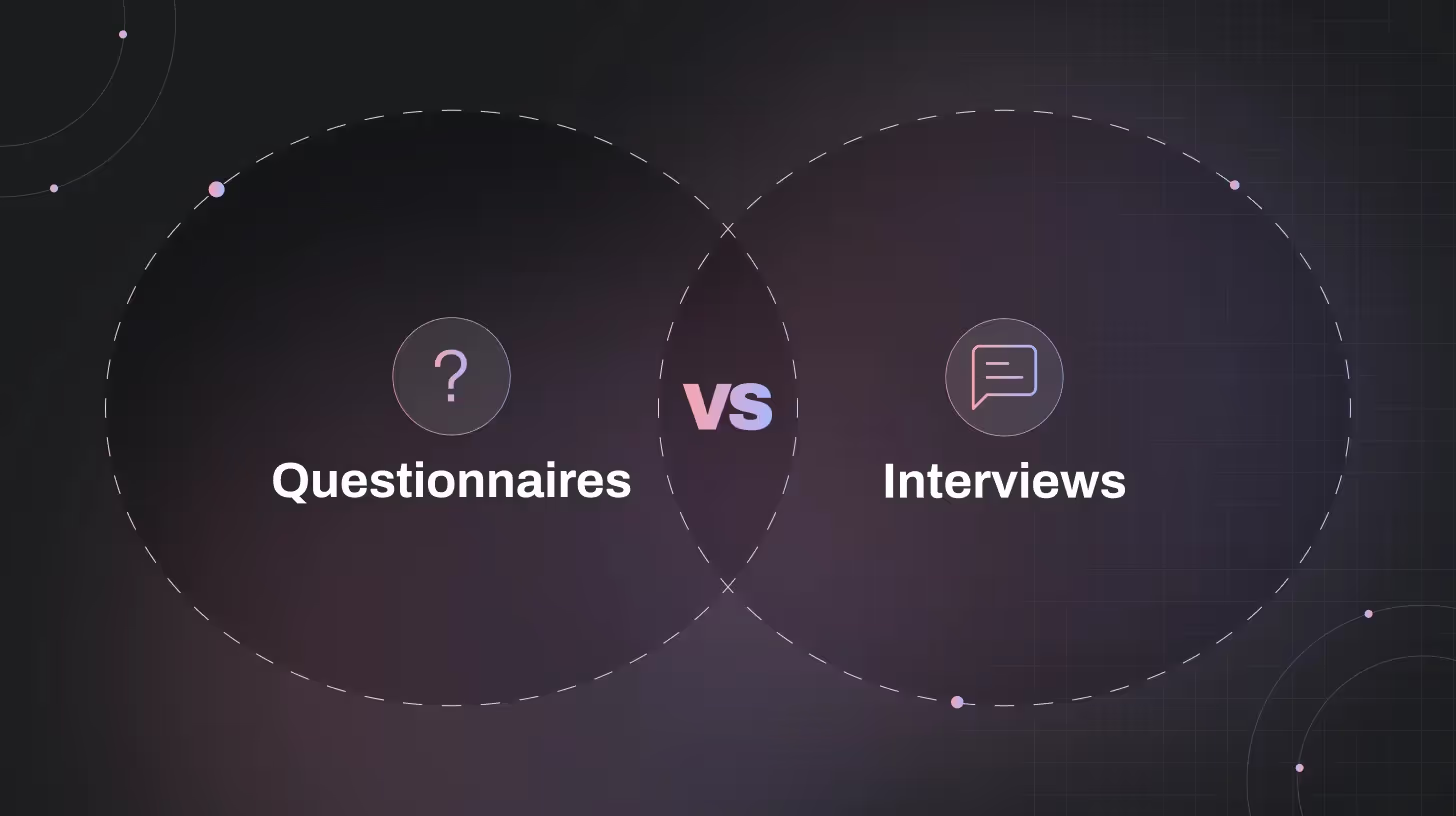10 years searching: Finally finding my secret sauce for 3x win rate

The question: “What is your secret sauce?”
This weekend I was at a parent-kid hangout and met a fellow immigrant mum who is very curious about my career trajectory from a new immigrant to CRO, and then Cofounder and CEO of TheySaid. She was so curious about “How I did it”. Honestly, I have been asked about this question over and over but I hadn’t figured out how or why. Maybe I got lucky?
So I told her that I entered into B2B sales when I was @UserTesting. I started as a tester, then became a customer, then became an employee, and when I was the AE for UserTesting, my monthly sales number was 3x of the 2nd best sales rep in a good month and 2x of the 2nd best sales rep even in a bad month. She asked: Why, what is your secret sauce? Why is your number so much higher? It can’t be luck or coincidence, but repeatedly 3x or 2x? Why?
Exactly, why? That is the answer I have been searching for 10 years. UserTesting was my first B2B sales job. I had no formal training. My English was broken, and I didn’t even know how to use Salesforce. But somehow, my secret sauce for 3x revenue helped me consistently outperform, with a close rate far beyond my peers.
The Journey of searching secret sauce (at UT, at Haas, at Gitprime - I made some improvement, but still didn’t find the answer)
Soon, others at UT wanted to figure out how I did it as well. CEO @darrell benatar, tried to have me replicate myself by training my peers, so we could create a high performing sales team. I sat with other sales reps and tried to teach them my “ secret sauce”, but it didn't work. We had a sales coach come in and listen to my calls vs my peers, They didn’t find anything useful. We tried to pull salesforce activity, and at first it did show I have 3x the activities than other reps, maybe I worked harder, then found out the other reps just didn’t record their activities, so we were back to zero. After trying so hard to find the why, we gave up. Our CFO @tien anh nguye put my close rate and number as outliers in his book, so I don’t mess up his revenue prediction model. I still didn’t know why my process worked for me but not for others. It felt like we were doing the same things. The truth is, we didn’t know what the secret sauce was, so we couldn’t replicate it.
In order to find out why, I went to Haas MBA program and a year later I joined Gitprime as CRO. Gitprime was a YC backed startup with great vision and solution, but no sales. I was employee #5 and the only person who can’t code. So I started my life of building Gitprime during the day and the Haas MBA program at night. At Gitprime, I grew revenue from 0-$15M in about 4 years. We had 3x annual growth during my 4 years in that role. I replicated part of me and created the Gitprime revenue team called the Wild Dogs team.. Those were some of my best years, growing and learning every day as a leader, coaching others to be successful. We had Wild Dogs of the month and Wild Pups of the month to encourage learning and team culture. I hire sales people without any sales-related experience, but train them to be some of the best sales people in the country and some have gone on to become amazing sales leaders themselves. I have had the privilege to work with some of the brightest minds in the country at the Wild Dog team. To name a few @gresyon - cofounder and CRO at DX. @Josh Hicken, cofounder at TheySaid, @Brian clausen, cofounder at Kind energy, @Amy Long, head of CS for Pluralsight, Zonos and now with me at TheySaid.
I thought I had cracked the code and was able to replicate part of me, but deep down, I still didn’t know why.
Founding TheySaid and continuing my secret sauce journey.
Fast forward to early 2023, and I founded TheySaid. TheySaid helps companies deeply understand their customer base by doing win-loss interviews and journey pulsing. The goal is to guide business decisions and actions with the best quality customer data and measure success through TheySaid’s CPV (Customer Perceived Value). At the end of the day, I believe businesses exist long term to deliver value to their customers.
Recommended Read: How AI Win/Loss Analysis Boosts Sales by Understanding Buyer Feedback
I interviewed over 500 potential customers in the period of 18 months before founding TheySaid, and have learned a ton, so I wanted to share some of my learnings here.
Instead of looking at traditional internal data (product usage data, Sales teams and, CSMs opinions) of whether or not a customer received value, we asked the customers directly. We believe customers should be the one to decide if they received value, not the company. And we won’t ask the selfish NPS question: “ how likely are you going to recommend my company to a friend or colleague” because customers care about themselves, not you! Most companies are asking the wrong questions, and then complaining that customers don’t respond to their survey. Industry average survey response rate is 1% to 4%. McKinsey wrote their study about the myth of survey fatigue in this article. “ The truth is: consistently, the number one driver of survey fatigue was the perception that the organization wouldn’t act on the results”
Really listen to your customers
I have also met leaders that believe customers don’t know what they want, if you ask what they want, they might say they want a faster horse. Sure, customers might not have the best solutions to their problems, but they sure understand their pain and what they don’t want. It is up to the willing-to-listen entrepreneurs to come up with the right solution.
Luckily most leaders I talked to value the power of customer insights, as TheySaid acquiring new customers, I am starting to see the power of customer insights unfold in front of my eyes. I was really blown away by what I saw. For example, one of our customers launched their CPV program. (we ask customers 4 questions: the 4Ps, problem, product, pricing, people)
How critical is the problem xx company solves for you?
How good is the product experience?
How easy is it to justify the pricing?
React to this statement: Xxx company’s team adds value to my overall experience.
As expected, they positioned themselves as a low price winner and their score in problem, product and people score were in line with other companies, with the exception that their pricing score is a lot higher than normal. So their team discovered that they have room to increase pricing and they did but their CPV score was still stable. This resulted in several millions of increase in revenue.
That small change equating to big money is just one of the things we can see as a result of constantly monitoring CPV. These guys are using TheySaid’s customer insights to test pricing elasticity!!
So what else can customer insights do?
Another customers’ CPV score was really low in Problem and Pricing, and found that they were being compared to a low price competitor that only does part of their offering. Another interesting data point was that the SMB CPV score was a lot lower than Mid-Market and Enterprise customers’ .This means their SMB customers received less value despite so much resources invested in helping them. The team decided to move their business more toward Mid-Market and Enterprise segments and reposition their solution to help their clients get more clients, rather than a financial management system. This completely changed their business, unlocking growth.
What?! They are using TheySaid’s customer insights to identify ICP and making the right bets! I didn’t realize you can use customer insights to transform business like this. This is a huge differentiator for our customers to win against competitors!
What else can deep understanding of customers do to business? And to the team members?
It all makes sense now: the secret sauce
And suddenly, I got the Aha moment, the answer I have been searching for 10 years! My secret sauce for 3x revenue has always been an obsession to deeply understand customers. At UserTesting, the reason why my sales number was 3x the 2nd best sales rep is because I deeply understand our customers and UserTesting’s product and value. As SunTzu put it in his “ The Art of War” - "Know yourself, know your enemy, and you will not be defeated in a hundred battles."
This proverb emphasizes the importance of understanding oneself and one's opponent in any situation, as such knowledge can lead to a strategic advantage and increased chances of success.
I interned at UserTesting, then signed up to become one of their testers. Over the years, I became a customer while running Thinktank learning and lottoJar, eventually becoming UserTesting’s employee. . I had the unique opportunity to deeply understand both the value and use case of UserTesting, and the customers, because I am in both shoes every single day. No wonder other reps can’t compete.
When I moved to Gitprime, their target audience was engineering leaders, and they hated talking to salespeople, and I don’t know anything about coding or managing engineering teams. I got destroyed at every single call the first few months. Slowly I started to learn - to understand their pain and put myself in their shoes, even the way they talk and think.
Every single piece of jargon or industry-specific vocabulary I use in my pitch came from listening to customers. I remember one time after I pitched to a big engineering team, their leader was like: "This is great, ask your salespeople to talk to us about signing contracts” – I was like, “I AM the sales people, I just sounded like an engineering leader.” Haha!
With my personal success, the next step was to build a sales team that deeply understood our target audience. Instead of hiring experienced sales reps from other companies, I set out to find similar people to our target audience then train them on sales. I did personality matching, Wonderlic score matching, hiring only people that could be an engineer with training. Then train them on being an engineer, understanding the pain and everyday life of that target audience, and then finally, train them on Gitprime’s solution, product, and at last, how to sell.
Target audience training is the key, we even designed some games just for that purpose. I called it the Silicon Slope game: if you are also selling to engineering, I am happy to share, just PM me. The goal of the game is purely to let new hires suffer non-stop in the target audience's pain. The more chaotic the better, the more suffering the better. I believe sales people don’t deserve to sell a solution if they don’t truly understand the needs of the customers, and haven’t put themselves in the shoes of customers.
Knowing my secret sauce, I am so proud of what I am doing now - Building TheySaid I have benefited my whole career from the power of deeply understanding customers, others should enjoy it too. But not everyone was lucky enough to land in a situation that happens to wear both shoes, or have the resources and energy to hire and train the teams. Plus, one of the difficult things is that your customer evolves and changes all the time. I remember at Gitprime when my team grew to 20+ 45+, then 70+ people, I couldn’t spend 6 hours per day listening to calls anymore, but I really wanted to know what the customers were thinking. Why did they leave us, why did they buy, what roles received the most value, who loves us, who is a blocker.
One of the things I regret I didn’t do is “ win-loss analysis”. I try to understand why customers leave by looking at CRM close-lost data filed by the team members, or listening to sales calls or talking to the CSMs. Why didn’t I just ask the customers directly? If there is a time machine, I wish I could have had close conversations with customers, do win-loss analysis continuously, so I could understand what customers think of us at any given time.
How powerful would that be? A team of super closers with a high win rate, a much lower churn rate! Figure out what bets to make for another year’s 3x growth? How about the land and expanding motion I always want to set up?
Recommended read: Understanding Buyer Feedback Through AI Win-Loss Analysis
Want to Learn More?
If you’re a GTM leader building for scale and want to tap into this secret sauce, I’m happy to chat.
Ping me on LinkedIn or email me at lihong@TheySaid.io.














.svg)